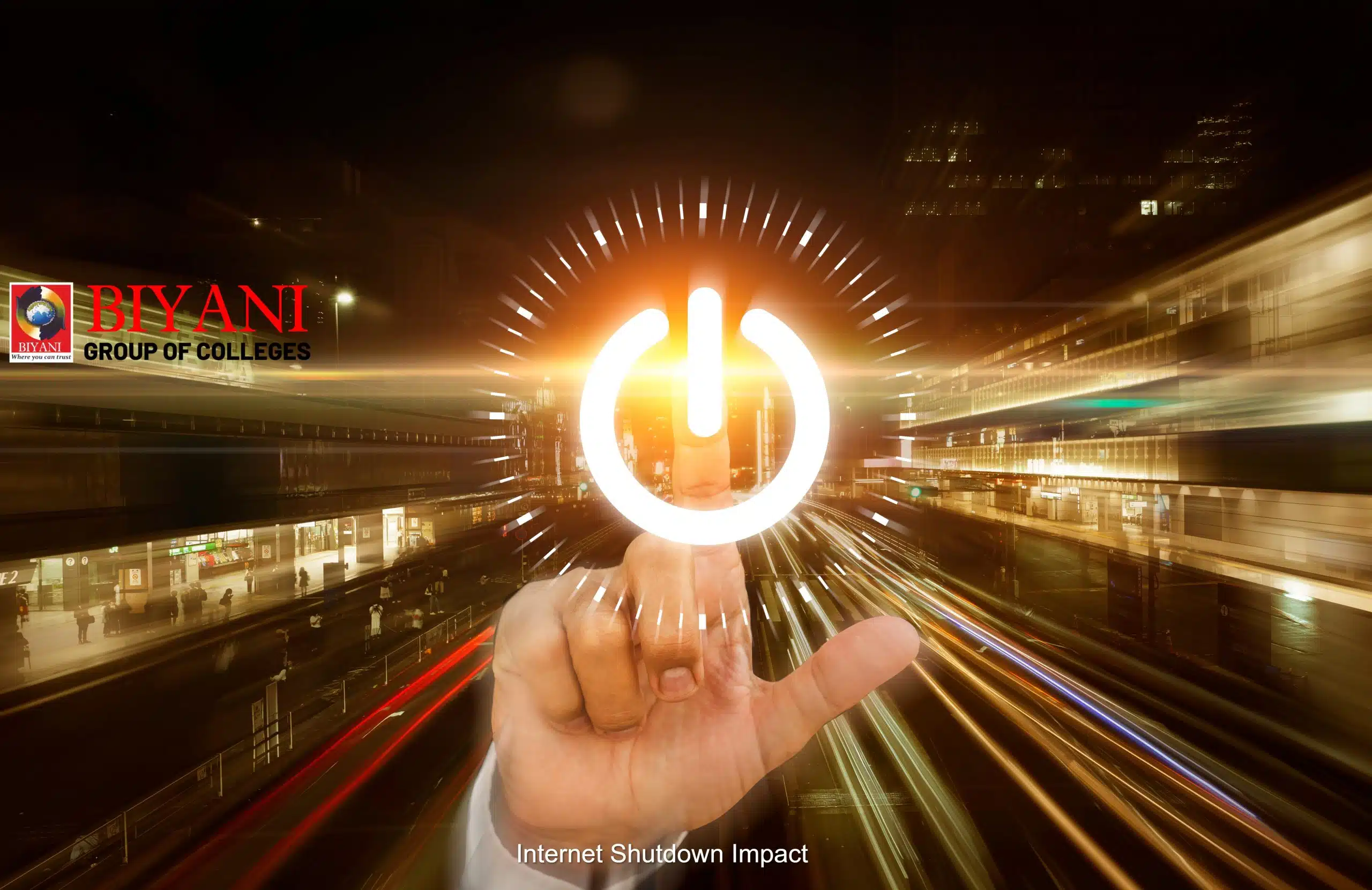The internet has become the lifeline of modern life — connecting people, powering businesses, and shaping how we learn, shop, and communicate. At Biyani Group of Colleges, a leading bca college in jaipur, we often explore how technology impacts our daily lives and education. But what if, one morning, it simply… stopped?
A day without the internet might sound peaceful at first, but the world would quickly realize how deeply connected every system is to this invisible network. Let’s explore what would really happen — step by step.
Wake-Up Call: When the World Goes Silent
Before you even get out of bed, your day begins with the internet — your alarm, your social media scroll, your morning news, even your breakfast recipe. Now imagine none of it works. No Wi-Fi, no mobile data, no Google searches.
People would first think it’s a small glitch — but as the silence spreads, panic sets in. That’s when we’d realize: the internet isn’t just a convenience; it’s a part of daily life.

Communication Collapse: When Messages Stop Moving
The first and biggest shock would be in communication. No WhatsApp, no Gmail, no Instagram messages, no Zoom calls. People would rush to make old-fashioned phone calls or even visit friends in person.
Businesses that depend on email or online meetings would suddenly be disconnected. It’s strange but true — we might talk to people face-to-face more, but staying in touch globally would become almost impossible.
The Work World Pauses
From multinational companies to small startups, most offices run entirely on internet-based tools — cloud storage, online meetings, emails, and digital payments.
- Files can’t be accessed or shared.
- Meetings get canceled.
- Orders and deliveries stop.
- Financial transactions freeze.
In short, the world economy would pause. A single day of global internet failure could cost billions of dollars in lost productivity.
Students Offline: Education on Hold
Today, students learn, attend classes, submit homework, and research online. Without internet access:
- No Google Classroom or Zoom lectures.
- No educational videos or digital notes.
- No online assignments or emails from teachers.
For one day, students would have to depend on textbooks and printed materials, just like in the past. It would be quiet — but also a reminder of how much learning now depends on the web.
Economic Freeze: When Money Stops Moving
The economy runs on digital connections. Without internet access:
- Online shopping sites like Amazon and Flipkart would shut down.
- Food delivery apps like Zomato and Swiggy would stop working.
- UPI, Paytm, Google Pay — all online payments — would fail.
Even banks and ATMs could face disruptions because most financial systems depend on online networks. A full-day internet shutdown would mean massive financial losses and chaos in business operations.
Entertainment Blackout: The Quiet Screens
No YouTube, no Netflix, no Instagram Reels, no Spotify. At first, people might feel bored or frustrated — but soon, they might rediscover offline joys. Families could talk more. Children might go outside to play. Adults could read, cook, or just rest.
The day could turn into a digital detox, reminding everyone that peace doesn’t always come from a glowing screen.
Hidden Heroes at Work: Fixing the Digital World
Behind every click, there are people — engineers, data managers, and network technicians — who keep the internet alive. If a global outage happened, these experts would work around the clock to bring it back.
Their efforts remind us that the internet isn’t magic — it’s a human-made system that requires constant care and protection.
Lessons from a Disconnected Day
After 24 hours offline, the world would wake up with a new understanding:
- The internet is a necessity, not a luxury.
- We are all deeply interconnected.
- Balance matters — we shouldn’t depend completely on screens.
- Offline life still has value.
It would teach individuals, businesses, and governments how important it is to have both digital efficiency and human adaptability.
The Bright Side: Reconnecting with Reality
Ironically, losing the internet might help people reconnect — with themselves, their families, and their surroundings. Without constant notifications and updates, our minds might finally slow down.
People could spend time doing things they’ve missed — reading, walking, cooking, or simply enjoying silence. The experience might inspire many to set healthy digital limits even after the internet returns.
Conclusion:
A Pause That Teaches Us to Value ConnectionA day without internet would feel like the world has stopped — but it could also remind us of what truly matters. The internet connects billions of people, powers our economies, and fuels creativity — yet, it should never replace real human connection.
So maybe we don’t have to wait for a global shutdown. We can choose to disconnect for a few hours once in a while — just to experience life beyond the screen and appreciate both worlds: online and offline.
Blog By: Dr.Surbhi Mittal
Assistant Professor
Biyani Group of Colleges, Jaipur

